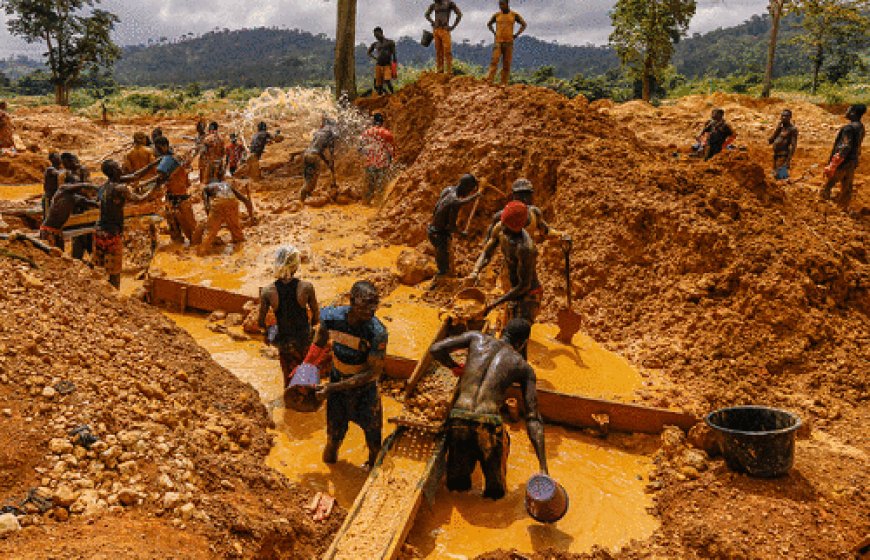Food exports from Ghana are in jeopardy, an engineer says

An engineer has warned of high levels of heavy metals, putting Ghana's food exports at risk. Dr. Juliet Ohemeng-Ntiamoah, an engineer working in the US, has disclosed that certain food products shipped from Ghana have dangerously elevated concentrations of heavy metals.
She criticized the idea that people in Accra shouldn't be worried about the consequences of illicit mining, or galamsey, pointing out that people in the capital can still be impacted by mining operations in other areas.
Also Read: Top 5 Strongest Currencies in Africa 2024
“People have said to me, ‘Juliet, you live in the US, why are you discussing galamsey?’ I want to stress that even those of us in the diaspora are affected by the consequences of galamsey,” she stated.

"Many of us, particularly those who are discerning about our diets, continue to enjoy Ghanaian food even after spending years in the US. I frequently shop at African markets for yams and other groceries. Recently, I spoke with a friend at the Ghana Standards Board, who informed me that they found high levels of heavy metals in the yams being exported."
Dr. Ohemeng-Ntiamoah made these remarks during a public discussion about galamsey on the Accra-based JoyNews current affairs show Newsfile on Saturday, October 5, 2024.
"This is a call to those in the diaspora who think that galamsey is only happening in Ghana. The effects of galamsey are reaching us even here in the US. So, let alone if you are in Accra and think that galamsey is only happening in the Western or Ashanti regions. For you, the effects are even more prevalent than for those of us here."
She emphasized that the heavy metal concentrations brought on by illicit mining operations are beyond the capabilities of Ghana's current water treatment systems. The use of chemicals like arsenic, lead, and mercury in galamsey operations worries her, and she said, "This issue is bigger than the muddy water we are seeing."
Ghana is currently engaged in a civil war against illegal mining, which has contaminated many of the country's waterways and turned them murky and brown. The first protests resulted in 53 arrests, and the three-day #StopGalamsey march, which concluded yesterday, was a powerful reaction to the first protest.
The most recent protests, which used the hashtag #FreeTheCitizens, called for the government to act quickly to stop the worsening galamsey crisis in addition to demanding the release of the activists who had been detained. With mounting pressure on the government to take strong action against unlawful mining, further protests are expected in the coming days.

On October 10, 2024, Organized Labor said that it will go on strike. On October 11, 2024, the Catholic Church scheduled a prayer demonstration to show support for the struggle against Galamsey.





